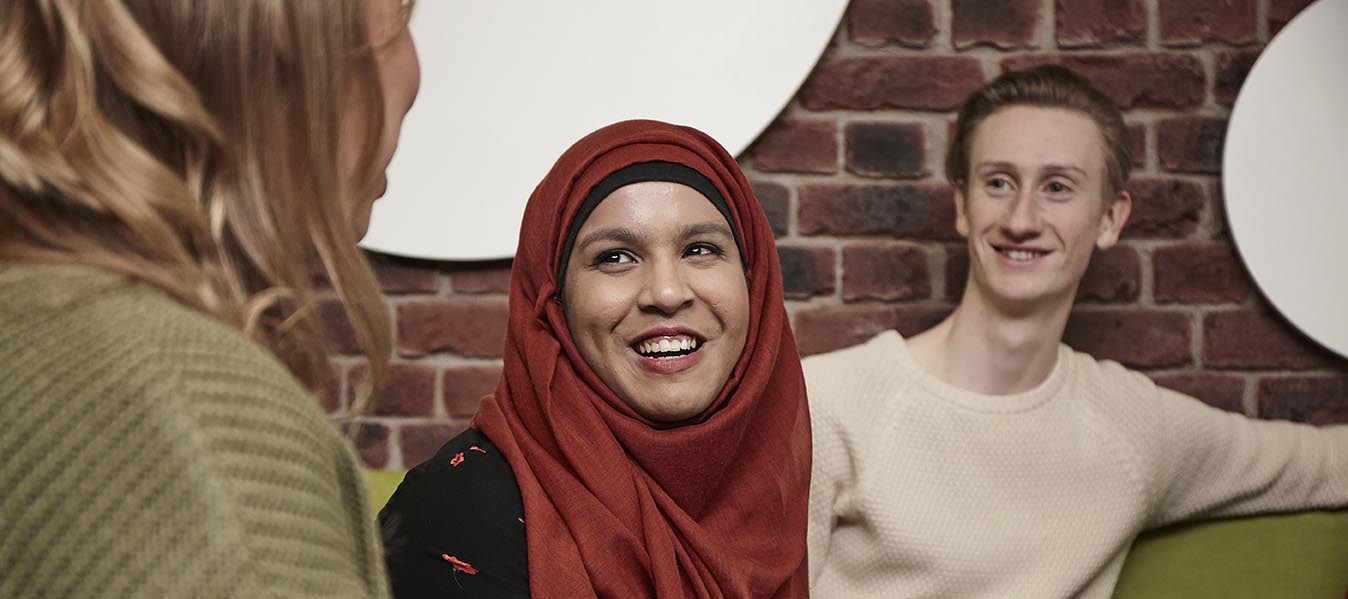
In the second of her posts exploring issues around race and religion for our equality and diversity blog, Maisha Islam, administrator for the Centre for Student Engagement, asks: to what extent are our education systems reflective of the society we now live in?
In my first post, I looked at the subtle ways in which race and religion affect the lives of those in minority groups through the example of micro-aggressions, ie the mundane verbal or non-verbal ways of communication which are often hostile, negative or derogatory in nature targeted towards those of 'marginalised' groups. This was to highlight the covert yet equally damaging actions that implicitly disadvantage those from religious and Black, Asian and minority ethnic (BAME) groups.
In this post, I'm looking at the role of race and religion within education. However, this discussion will look at how this can be far more insidious. In a world where different cultures and backgrounds are frequently coming together, to what extent are our education systems reflective of the society we now live in?
The term 'ethnocentric curriculum' has long been used to suggest that learning and teaching occurring in places of education exclude minority cultures, thereby perpetuating the belief in a superior White/'British' culture.
For example, it is common to learn about Britain's colonialism, or focus largely on European history whilst neglecting the rich history of other parts of the world - or even the diversity which makes Britain, well Britain!
The effects of this translate even into higher education, a place which should cultivate spaces for critical discussions and diverse knowledge exchange.
Yet we are seeing students being deprived of the opportunity to be more culturally aware, to digest cultural scripts they may not have the pleasure of otherwise encountering, or even beginning to understand experiences that are so different to their own.
Nevertheless, within higher education, we are seeing passionate calls from students to 'decolonise the curriculum' as they cannot see themselves in the educational content of their institutions - and this is the very system in which they are then judged against.
Decolonising the curriculum therefore calls for the transformation of spaces in education, that are largely upper/middle class and White, to be reflective of the diversity within the student body, and to value knowledge, material and culture from a range of backgrounds.
There have been some fantastic strides being made, such as the 'Why is My Curriculum White?' movement started by University College London, and more recently the 'Decolonising the Arts Curriculum: Perspectives on Higher Education Zine' by University of the Arts London - both giving this issue the attention it so rightly deserves.
Providing adequate representation within our educational curriculum and institutions as a whole will therefore accommodate those minority groups and allow the majority to thrive in learning beyond their own experiences.
However, the failure to actively enrich our education system as a whole risks allowing prejudice and discrimination to seep further into our social fabric.
The latter is particularly exemplified by a cruel and inhumane video from last year showing a 15 year-old Syrian refugee from Huddersfield being pinned to the ground and practically water boarded by a 'peer'.
Similar videos show his 14 year-old sister receiving similar treatment, as well as reports of her hijab being forcibly removed: these are exactly the kind of repercussions that thrive in exclusionary and intolerant systems.
There are absolutely no words, justifications or excuses that could ever begin to come from this school or the individuals involved in these horrific acts. Both the boy, his sister and their family came to the UK after fleeing persecution in Syria, only to endure further hardship.
Speaking from the perspective of a Muslim woman who wears the hijab, the thought of having my own forcibly removed is something I cannot fathom. Its value in my life is second to none as it is a part of my identity, which is perhaps something we should be better acknowledging within our education systems.
Photo: Julian Benjamin
Back to media centre